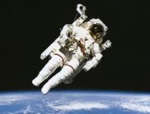Science, the Art of Understanding Nature
Science
began in magic. Early man lived at the mercy of uncontrolled nature.
Simple reasoning made him try to persuade and control nature as
one would a powerful human neighbor. He tried simple imitative magic,
such as jumping and croaking like a frog in the rain to encourage
rainfall, or drawing animals on cave walls to promote success in
hunting. He buried his dead near the hearth, with logical hope of
restoring their warmth; and he gave them tools and provisions for
future use. In a way, he was carrying out scientific experiments,
with simple reasoning behind them. It was not his fault that he
guessed wrong. The modem scientist disowns magicians because they
refuse to learn from their results —that is the essential defect
of superstition, a continuing blind faith. Primitive man, however,
had neither the information nor the clear scientific reasoning to
judge his magic…
Curiosity and collecting knowledge go back before earliest man.
Primitive man collected knowledge and used it: a beginning of applied
science. Then, as a reasoner, he began to organize knowledge for
use and thought. That is a difficult step, from individual examples
to generalization—watch a child trying to do it. It is difficult
to grasp the idea of a common behavior or a general law or an abstract
quality. Yet that is the essential step in turning a “stamp
collection” of facts into a piece of science. Science, as we
think of it and use it now, never was just a pile of information.
Scientists themselves, beginning perhaps with the early priesthood,
are not just collectors. They dig under the facts for a more general
understanding: they extract general ideas from observed events.
Scientists feel driven to know, know what happens, know how things happen; and, for ages, they have speculated why things happen. That drive to know was essential to the survival of man —a generation of children that did not want to find out, did not want to understand, would barely survive. That drive may have begun with necessity and fear; it may have been fostered by anxiety to replace capricious demons by a trustworthy rule. Yet there was also an element of wonder: an intellectual delight in nature, a delight in one’s own sense of understanding, a delight in creating science… We meet wonder and delight in scientists of every age who make their science an art of understanding nature.
As scientists, we have traveled a long way from capricious gods to orderly rules; but all the way we have been driven by strong forces: a sense of urgent curiosity and a sense of delight.


 Editor's comment
Editor's comment